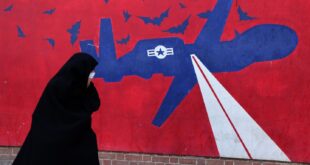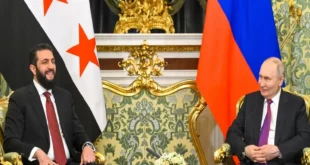 TEHRAN (FNA)- The latest report by the UN nuclear watchdog on Iran prompted a warning from the new Iranian Parliament Speaker Ali Larijani, who said the country could review its relations with the UN watchdog.
TEHRAN (FNA)- The latest report by the UN nuclear watchdog on Iran prompted a warning from the new Iranian Parliament Speaker Ali Larijani, who said the country could review its relations with the UN watchdog.
“Unfortunately, in certain parts it spoke in an ambiguous way. This was used by the media, as you have seen, in the last days. This attitude of the agency is regrettable,” he said in the speech at the new Iranian parliament which officially started work here on Wednesday.
“Parliament will not allow that such deceptions are made and if they continue along this path, the new parliament will intervene in the case and set a new line for cooperation with the IAEA.”
The parliament speaker did not say how Iran could alter its cooperation.
Larijani’s warning carries weight as its comes from one of the key Iranian figures in the nuclear standoff.
He served as top nuclear negotiator between 2005-2007, holding several rounds of talks with the European Union, before resigning due to partial differences with President Mahmoud Ahmadinejad.
The IAEA has spent four years investigating the Iranian nuclear drive but has never drawn a conclusion over its nature.
The United States, France, Britain, Russia and China – which make up the five permanent veto-wielding members of the UN Security Council – have drafted a “refreshed” package of incentives that they hope to offer Iran.
But western diplomats familiar with the case said that West’s package of proposals contains no new enticements compared with what was offered to Tehran in 2006.
The US State Department said the plan to deliver the package has not been affected by the IAEA report on Monday.
In recent weeks, Iran has held talks with the IAEA to examine the allegations that Tehran has studied how to design nuclear weapons. The claims stem from intelligence provided to the IAEA by some member states.
The United States and its Western allies accuse Iran of trying to develop nuclear weapons under the cover of a civilian nuclear program, while they have never presented any corroborative document to substantiate their allegations. Iran denies the charges and insisted that its nuclear program is for peaceful purposes only.
Tehran stresses that the country has always pursued a civilian path to provide power to the growing number of Iranian population, whose fossil fuel would eventually run dry.
Iran is under three rounds of UN Security Council sanctions for turning down West’s illegitimate calls to give up its right of uranium enrichment, saying the demand is politically tainted and illogical.
Iran has so far ruled out halting or limiting its nuclear work in exchange for trade and other incentives, and says it will only negotiate with the UN nuclear watchdog.
Iran has repeatedly said that it considers its nuclear case closed after it answered the UN agency’s questions about the history of its nuclear program.
The US is at loggerheads with Iran over the independent and home-grown nature of Tehran’s nuclear technology, which gives the Islamic Republic the potential to turn into a world power and a role model for other third-world countries. Washington has laid much pressure on Iran to make it give up the most sensitive and advanced part of the technology, which is uranium enrichment, a process used for producing nuclear fuel for power plants.
Washington’s push for additional UN penalties contradicted the recent report by 16 US intelligence bodies that endorsed the civilian nature of Iran’s programs. Following the US National Intelligence Estimate (NIE) and similar reports by the IAEA head – one in November and the other one in February – which praised Iran’s truthfulness about key aspects of its past nuclear activities and announced settlement of outstanding issues with Tehran, any effort to impose further sanctions on Iran seemed to be completely irrational.
The February report by the UN nuclear watchdog, the International Atomic Energy Agency, praised Iran’s cooperation in clearing up all of the past questions over its nuclear program, vindicating Iran’s nuclear program and leaving no justification for any new UN sanctions.
Tehran says it wants to enrich uranium merely for civilian purposes, including generation of electricity, a claim substantiated by the NIE and IAEA reports.
Iran has also insisted that it would continue enriching uranium because it needs to provide fuel to a 300-megawatt light-water reactor it is building in the southwestern town of Darkhoveyn as well as its first nuclear power plant in the southern port city of Bushehr.
Not only many Iranian officials, including President Mahmoud Ahmadinejad, but also many other world nations have called the UN Security Council pressure unjustified, especially in the wake of recent IAEA reports saying Iran had increased cooperation with the agency.
US President George W. Bush finished a tour of the Middle East in winter to gain the consensus of his Arab allies to unite against Iran.
But hosting officials of the regional nations dismissed Bush’s allegations, describing Tehran as a good friend of their countries.
Bush’s attempt to rally international pressure against Iran has lost steam due to the growing international vigilance, specially following the latest IAEA and US intelligence reports.
 Eurasia Press & News
Eurasia Press & News


